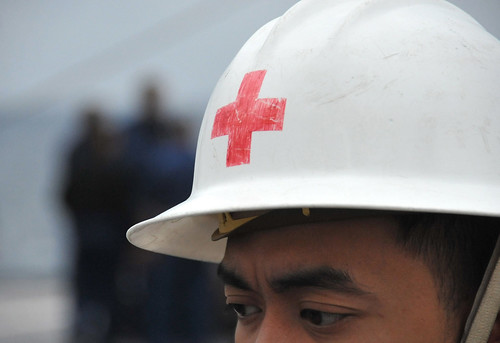 The earthquake, tsunami and nuclear disaster that struck Japan in March will likely pressure the country’s renowned health care system, concluded The Telegraph‘s Peter Pallot in an article yesterday.
The earthquake, tsunami and nuclear disaster that struck Japan in March will likely pressure the country’s renowned health care system, concluded The Telegraph‘s Peter Pallot in an article yesterday.
Japan’s reputation for health excellence is partly a result of the high-tech approach hospitals have adopted toward care (“We’re years behind,” said a senior British surgeon after seeing the 3-D imaging capabilities of Japan’s National Cancer Centre).
Yet surgery in Japan is significantly cheaper than in many western countries: a single-heart bypass costs the equivalent of around £3,000, a full 75% cheaper than in the UK. The Japanese have achieved this through a system that is “publicly funded and privately provided,” in The Telegraph‘s words. Almost everyone in Japan is required to join a state insurance scheme, though foreigners have a bit more latitude. Hospitals and clinics are privately run. Funding comes from a mix of employer contributions (as in the US), public funds (like the UK) and high 30% co-pays (patterned after France).
Japan also relies on immigration controls to limit the number of foreigners who might obtain care without paying into the system. This may make it tougher for expats to obtain visas, but also ensures they reap all the system’s benefits when they arrive.
The full extent of the burden the recent disasters will place on the system remains to be seen. Radiation from the Fukushima nuclear in particular may have repercussions for years to come. Costs may be comparatively low in Japan, but public spending on healthcare is creeping upward like everywhere else – from 8.1% in 2007 to nearly 9% just prior to the tsunami. And though the Japanese system may be more cost-efficient, Japan is uniquely unsuited to higher spending: Japan’s budget deficit is already over 200% of GDP.
If the long-term health impact of the disasters triggers a sharp increase in spending, Japan could be in the uncomfortable position of having to privatize funding for some of its health system. A number of private international insurers already offer coverage to expats living in Japan, including AxaPPP, InterGlobal, Bupa International, Expacare and Aviva International. AxaPPP and InterGlobal are currently undercutting their competition with unusually low premiums, noted The Telegraph.
For more information on the Japanese health care system and expat health in Japan, visit the Health section of Just Landed’s expat guide to Japan.
